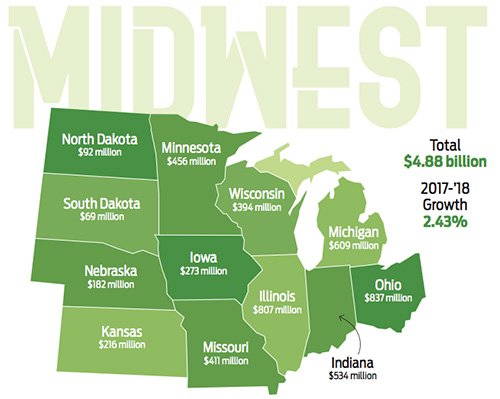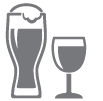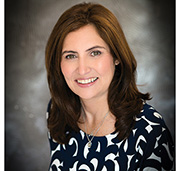April 23, 2018
Promotional Product Sales Report 2018 – Midwest
Big brands and big buying run through America’s heartland.
The U.S. is in its third longest period of economic expansion, and the consistency of growth has distributors in the Midwest enthused. While the overall region increased promotional products revenue by over one percentage point, distributors who spoke to Advantages project their 2018 revenue will be 15%-20% higher than 2017.
Overall economic health along with tax reform and infrastructure spending has played a significant part. Specific to the Midwest is the low unemployment rate of 4.0% – a very rare feat, and an even lower figure than the national average.
 Click here to see a larger image of the above map
Click here to see a larger image of the above map
In fact, the central theme distributors are encountering across their client bases is the need to retain good employees, and it’s prompted a huge amount of spending, especially on apparel. “I’m astounded by the per-employee budgets in the past year,” says Colleen Krause, senior account executive for Summit Group (asi/339116) in Bloomingdale, IL, whose clients include food producers and energy companies. “Until now, I’ve never seen clients ask for only retail brands; nobody is saying, ‘Oh, that option is too expensive.’” As a result, she’s routinely moving 75 to 100 soft-shell jackets at a time for between $40 and $70 each, versus $25 to $40 each two years ago. “The recruiting and retention focus is so big right now that companies feel they have to buy at that level.”
Max Forster, director of operations for Little Pepper Promotions (asi/377408) in Minneapolis, says his firm’s apparel business from healthcare, construction, real estate and education clients has more than doubled in just the past two years. “Our larger clients are retail-focused right now. They’re giving employees top brands and putting their own brand name alongside that. Off-brand is out and Nike, Eddie Bauer and North Face are in. They want to be perceived as a company that cares about their employees, and about how they look.”
>>Midwest Case Study: Branding A Red-Hot Opportunity For Distributor
For more than a dozen branches of a regional bank, Proforma Print and Promotional Images (asi/490801) in Lincoln, NE, started fulfilling a new program connected to a “casual Friday” initiative with more than 1,500 pieces this year. “They’re an existing customer that wasn’t doing much apparel, but they decided to give each employee $100 to spend in the online store for Friday wear,” says owner Tom Gourlay. The lowest-end items are $25 Ogio polos; from there it’s Cutter & Buck, Under Armour, Antigua and Patagonia for other polos, dress shirts, pullovers and soft-shell jackets. “They’re offering a lot of quality choices for both men and women,” he adds, “and many employees are going well over the company’s amount and paying the difference to get what they want.”
There’s also strong interest in product offerings for employee-focused initiatives; in addition to retention, there are health and wellness, safety, performance and longevity programs, which often get rolled together into one points-based online program with product rewards. Valerie Hayman Sklar, owner of Corporate Specialties in Detroit, says “it starts with onboarding new employees to make sure they feel welcome and comfortable. We’re doing notebooks, water bottles and even nice tumblers. Companies want Yeti, no matter the cost.”

With health and wellness initiatives for his construction and manufacturing clients, Jeff Ford, director of business development for Sourcepoint in Kansas City, MO, finds that “liquid carriers like S’well bottles and Tervis tumblers move well, but now they want bottles with a little carry loop near the top so people can exercise with them.”
For employee safety and convenience, higher-end accessories featuring a laser-engraved logo are now popular giveaways. Both Forster and Gourlay say they’re getting interest in $25 flashlights and multipurpose tools for field workers. And when it comes to the points programs, Bruce Steinman, president of Image Pros (asi/444449) in Indianapolis, sees employees saving for larger rewards such as Weber grills and big-screen TVs rather than making small redemptions. What’s more, “I’ve been able to sign new clients by citing that comprehensive program in proposals,” he says.
Despite the rosy reports, Midwestern distributors are still preparing contingency plans. Full employment will prompt rising worker compensation and spur a rise in inflation; in turn, interest rates will rise and spending will retreat. Because of this, “you can’t just push product. You have to show clients you can come up with solutions to their larger objectives,” says Krause. “As they’re buying all these goods now, you need to ask, ‘How can we make this effort not just meaningful but also measurable?’ Then they’ll see you as a consultant who addresses their issues strategically, and you’ll keep getting business even when things slow down.”
Hot List

Hot Strategy: Tapping Existing Accounts
Moving deeper into client companies is always a smart move – and right now the getting is very good. “I used to focus on finding new clients,” says Sourceprints’ Jeff Ford, “but now I spend more time and money on finding other products to present to existing clients and creating good samples. If the product is right, they find the budget for it.” Proforma Print and Promotional’s Tom Gourlay, too, has grown with a few large hospitals after they reverted back to budgets for individual departments. “We’ve moved through pharmacy to HR to the lab pretty quickly,” he says, “playing on their specific objectives to get them to say yes.”

Hot Trend: Real-World Products
Buyers are starting to hedge against the impermanence of digital products. “People are circling back to the tangible items,” says Joe McEuen, owner of My Brand Promo. “I play on that by saying, ‘Digital marketing is there and then it’s gone without leaving a mark, but quality items stick around.’” Valerie Hayman Sklar of Corporate Specialties notes something similar. “One younger buyer recently said to me, ‘I don’t use my phone as much anymore – I write in a journal,” says Sklar. “And on a few recent calls I presented journals. The recipients say they love using them and want to buy for employees and clients because it’s new and different to them.” But these old-school preferences aren’t low-end: “They definitely want Moleskine or leather.”

Hot Market: Startups
Tracking the evolution of a city’s overall business environment uncovers opportunities. For instance, “some Silicon Valley companies are opening regional offices in Minneapolis, so they’re going to have employee and client promotional needs,” says Little Pepper Promotions’ Max Forster. In Detroit, “we’re getting a surge of startup companies coming here because the real estate is cheap,” says Hayman Sklar. “They need promotional items to get workers, and many of them have seed money. They’re also spurring some neighborhood gentrification that’s luring new service businesses and restaurants.”

Hot Trend: Premium Packaging
“Going from generic bags to customized boxes is something we’re seeing a lot now, to make a strong impact with the presentation,” Forster says. “Most clients are willing to spend an extra dollar or two for that.” Furthermore, Image Pros’ Bruce Steinman stresses to clients that “there’s so much potential for great customization of both the product and the presentation – as long as they plan a bit farther ahead. We can do a really unique solution at a manageable price outside the U.S. We just need enough time.”

Hot Market: Wineries and Craft Breweries
From northern Michigan to southern Illinois and from Ohio to Iowa, wineries have sprouted up and become part of the travel and hospitality scene. Craft breweries too are found in nearly every city. Each presents big opportunity for distributors to move higher-end souvenirs as well as mats, rugs and other business accessories.
Community Connector
 Valerie Hayman Sklar: Finding the Personal Connection
Valerie Hayman Sklar: Finding the Personal Connection
Over the past 21 years, Valerie Hayman Sklar has cultivated a strong client portfolio for her Detroit-based firm, Corporate Specialties, through a combination of traditional and progressive marketing tactics. Her face is recognizable for a simple reason: She conducts face-to-face meetings as often as possible. “I bring spec samples so I have an excuse to get in front of clients for just 10 minutes,” she says, “and gauge if they have needs I can fulfill – or maybe there’s a need they hadn’t thought of.” For a recent encounter with a banking client, “I had a few pens made up with her own name on them as well,” Hayman Sklar says, “so she’ll always hang on to those.”
No matter the marketing medium, Sklar’s efforts always point toward generating a personal interaction. The cold-calling specialist she employs is enabled to pitch products, but the goal is to use her expertise and downtown Detroit location to score a brief sit-down. Facebook and Google ads, along with her educational blog, have led to sizable sales, but they’ve also brought about other results, such as podcast interviews and in-person speaking opportunities.
In fact, such opportunities play into her main networking strategy: Put yourself in situations where others can relate to you. For instance, she conducts her business much of the week from an office-sharing location run by WeWork. “There are lots of small businesses there, and WeWork hosts internal events frequently. You end up sitting next to someone you might have never met otherwise and learn about each other’s business.”
Another fruitful networking avenue has been her association with Goldman Sachs’ 10,000 Small Businesses Program, which has chapters in many cities. “The program is like getting a mini-MBA, and you also become part of an alumni network that understands you and trusts you.” The last such event she attended was the national alumni gathering in Washington, D.C., earlier this year; she made a splash by giving out small notebooks and pens along with her business card. Sklar has already gotten new business from alumni she met there.
Even after satisfying clients, Hayman Sklar resists resting on her laurels. “I’m lucky enough to have clients who are willing to refer me along within their circles,” she says. “But we always give out a lot of quality swag with our own logo to both clients and prospects: bags, pens, travel mugs – anything that people will walk around town with so others see our name too.”
Rob Carey is a contributing writer for Advantages.